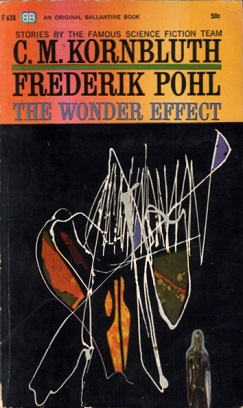
The Wonder Effect is a collection of science fiction stories by American writers Frederik Pohl and Cyril M. Kornbluth, published by Ballantine Books in 1962.
The first novelette, "Critical Mass", is a science fiction piece by Pohl and Kornbluth first published in Galaxy Science Fiction magazine in February 1962, almost four years after Kornbluth's death. According to a foreword by Pohl in the later collection Critical Mass, the story was assembled from notes Kornbluth made for three story ideas, plus one of Pohl's own from 1954. After Kornbluth's death, his widow turned over his story notes and drafts to Pohl, who completed a dozen or so stories based on this material, most of which were eventually collected in this volume and in the later Critical Mass.